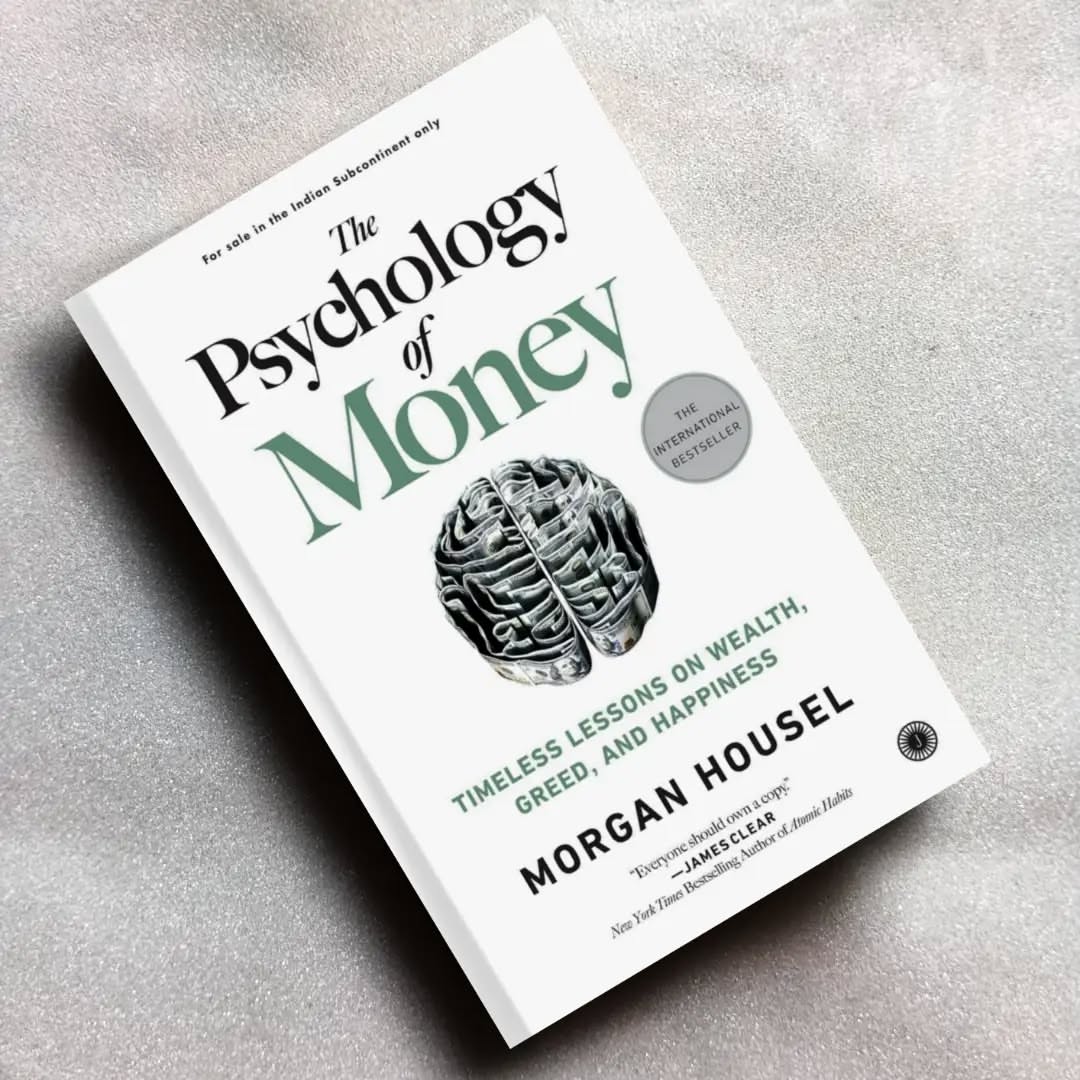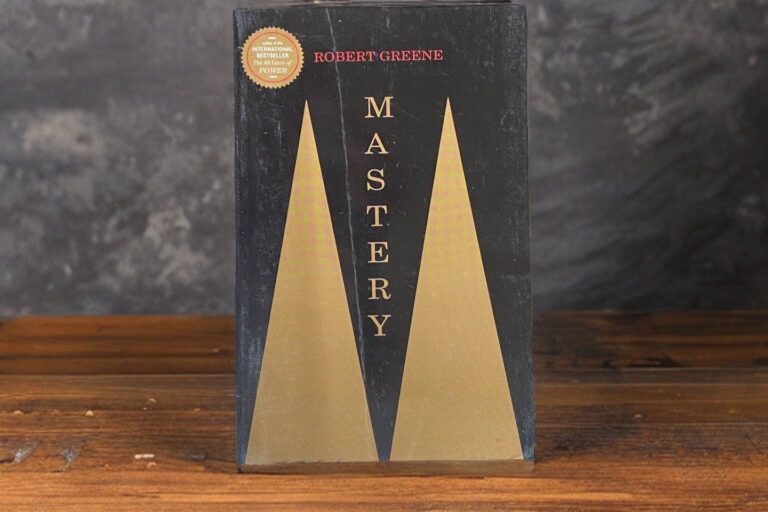
Author: Morgan Housel
Published: 2020
Category: Personal Finance / Behavioral Economics
Introduction — Money Isn’t What You Think It Is
Let’s be real: money isn’t just about dollars and cents. It’s about security, freedom, and sometimes… ego.
You’ve probably heard countless tips about “maximizing returns” or “finding the best stocks.” But here’s the shocking truth: your bank balance is shaped far more by your behavior than by your IQ.
That’s the core of Morgan Housel’s The Psychology of Money — a book that doesn’t just talk about wealth, but about the mindset behind it.
By the time you finish this summary, you’ll have the same insights that have helped millions of readers rethink how they save, spend, and invest — without falling for the same traps that ruin so many financial lives.
Chapter-by-Chapter Summary & Real-World Lessons
1. No One’s Crazy
Every money decision we make comes from our own personal story.
If you’ve lived through job loss, you may value security over growth. If you’ve only seen bull markets, you might think risk is harmless.
Think about it: The person buying crypto at its peak and the person stuffing cash under their mattress aren’t “crazy” — they’re just playing out their own past experiences.
2. Luck & Risk
Picture this: Bill Gates just happens to attend one of the rare schools with a computer in 1968. That single stroke of luck changes the world.
Flip the coin, and someone equally talented could fail simply because they were in the wrong place at the wrong time.
Lesson: Celebrate wins, but never forget luck’s invisible hand. And be gentle with people who lose.
3. Never Enough
Here’s the trap: you get what you wanted… and then you want more.
Gupta had millions, but his greed pushed him to risk everything. The result? A fall from grace and a prison sentence.
Challenge: Define enough. Write it down. That’s your anchor against greed.
4. Confounding Compounding
Compounding is like magic — slow at first, unstoppable later.
Warren Buffett’s fortune didn’t explode overnight. He invested early and let decades of time do the heavy lifting.
Action: Start today, even if it’s small. The real magic isn’t the amount — it’s the years.
5. Getting Wealthy vs. Staying Wealthy
Getting rich takes bold moves. Staying rich takes humility.
If you’re always swinging for the fences, one bad pitch can wipe you out.
Rule: Once you’ve built wealth, play defense more than offense.
6. Tails, You Win
Some bets flop. A few transform your life. Venture capitalists know this — one big win covers a hundred failures.
Truth: You don’t need to be right every time, just at the right time.
7. Freedom
The most underrated form of wealth? Waking up and owning your day.
Exercise: Track how much of your week you spend doing things you choose to do.
8. Man in the Car Paradox
You think people admire you because of your luxury car. Truth? They admire the car.
Mindset shift: Buy for joy, not applause.
9. Wealth is What You Don’t See
The rich guy flashing a Rolex might be deep in debt. The quiet neighbor with a modest lifestyle? Probably a millionaire.
Reminder: True wealth is silent.
10. Save Money
You don’t need a reason to save. Savings are your shield against life’s curveballs.
Tip: Automate it. If it’s out of sight, it’s out of temptation’s reach.
11. Reasonable > Rational
Perfectly rational is overrated. What you can stick with matters more.
Example: If 100% stocks make you panic-sell, then it’s not reasonable for you — no matter what the math says.
12. Surprise!
The next big financial event? You probably can’t predict it. No one called COVID-19 or the 2008 crash at the exact moment.
Prepare: Diversify. Keep cash reserves. Avoid overconfidence.
13. Room for Error
Think of it as a financial “spare tire.”
Rule: Always have at least 3–6 months of expenses ready.
14. You’ll Change
Your 25-year-old self might want adventure; your 45-year-old self might want stability.
Advice: Update your money plan yearly to match your life stage.
15. Nothing’s Free
High returns come with high volatility. That’s the price.
Mental trick: Think of volatility as the ticket you buy for long-term wealth.
16. You & Me
We all have different money goals. What’s risky for you might be safe for someone else.
Action: Ignore one-size-fits-all advice. Build your own playbook.
17. The Seduction of Pessimism
Bad news is tempting because it feels urgent. But over the long run, optimism wins.
Balance: Stay informed, but don’t live in doomscroll mode.
18. When You’ll Believe Anything
Humans love stories, especially in finance. But a good story doesn’t make it true.
Filter: Look for data, not drama.
19. All Together Now
It’s simple: save more than you spend, avoid ruin, respect luck, seek freedom, think long-term.
20. Confessions
Housel’s personal money rules: Save a lot, avoid debt, and prioritize independence over status.
Quotes That Stick With You
- “Wealth is what you don’t see.”
- “The highest form of wealth is the ability to wake up and say, ‘I can do whatever I want today.’”
- “Save money. You don’t need a specific reason.”
FAQ
Is this book beginner-friendly?
Absolutely — no finance jargon, just timeless wisdom.
Does it give investment tips?
Not directly — it’s about mindset, not picking stocks.
Main takeaway?
Master your behavior, and money will follow.
Review
Pros:
- Easy to read
- Story-based lessons
- Applicable for all income levels
Cons:
- Some repetition
- No step-by-step “get rich” guide
Verdict: ⭐⭐⭐⭐⭐
A modern classic that belongs on your bookshelf.
Final Thought
If money is the game, The Psychology of Money teaches you the rules no one talks about.






